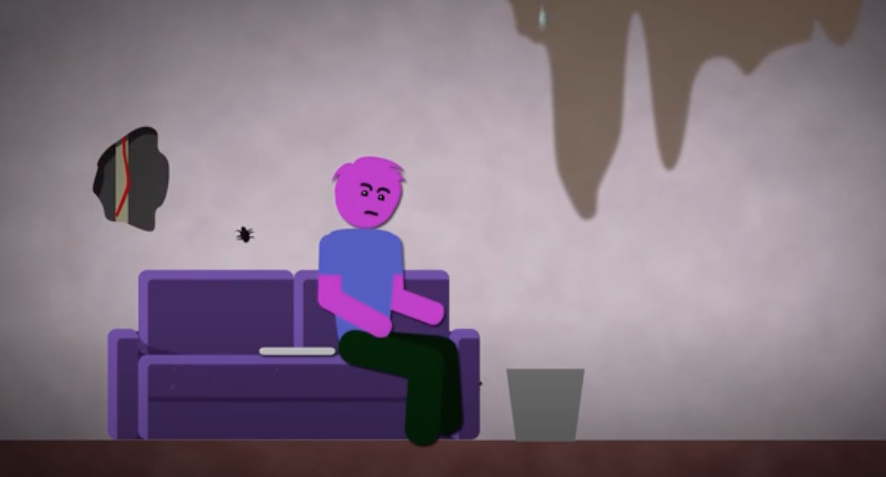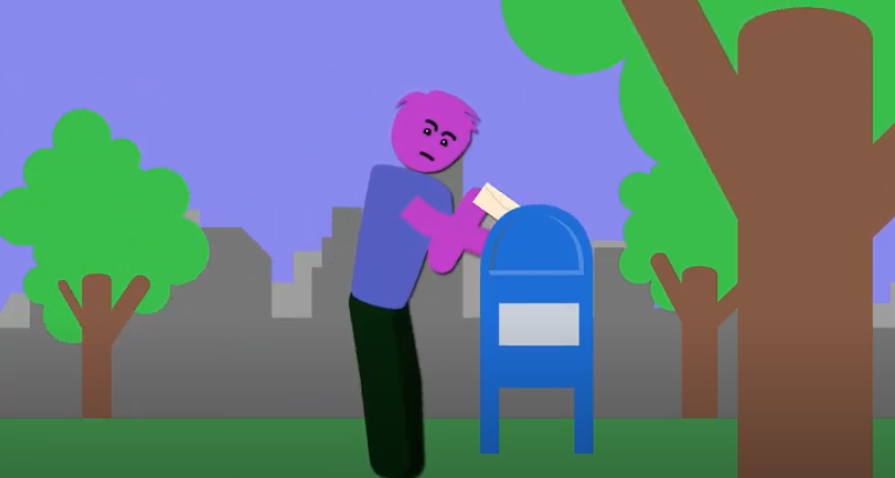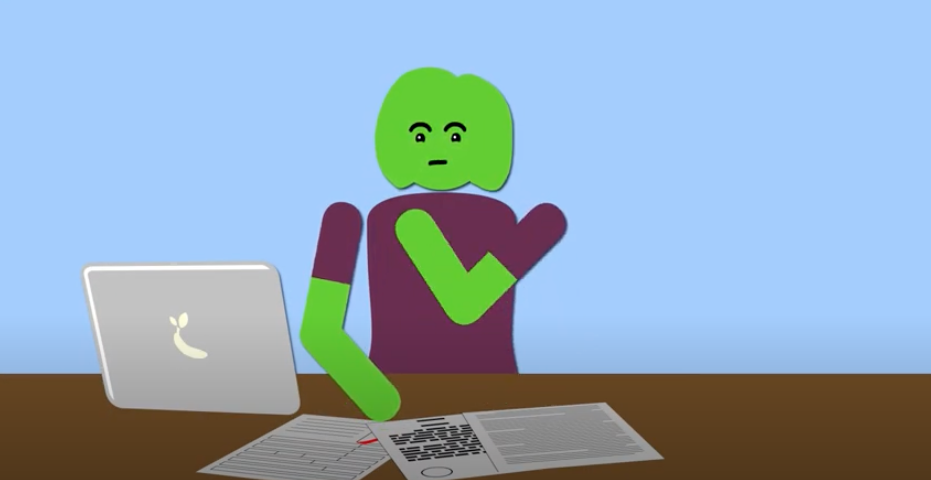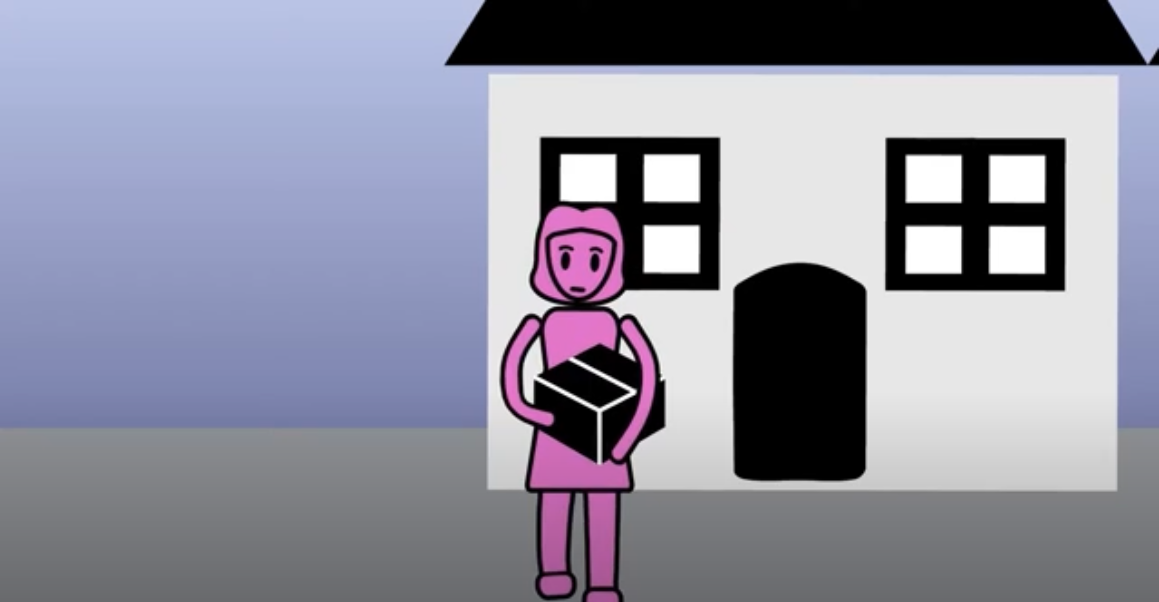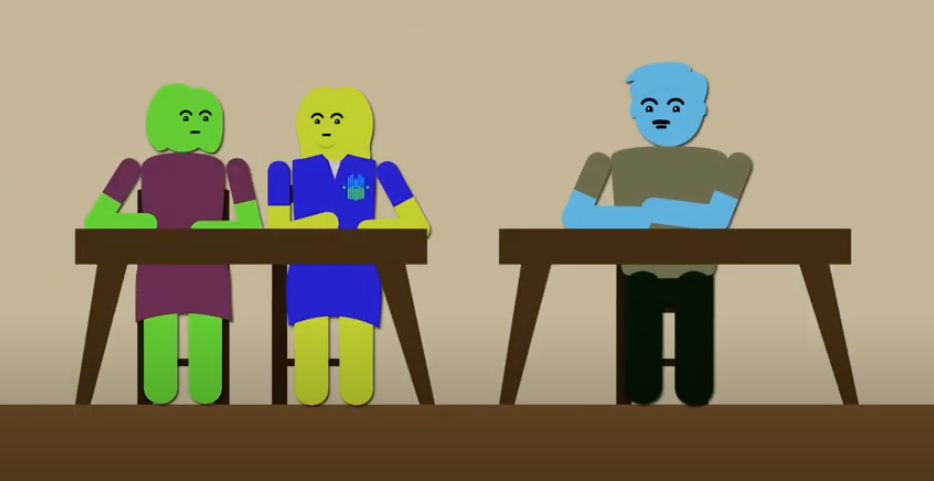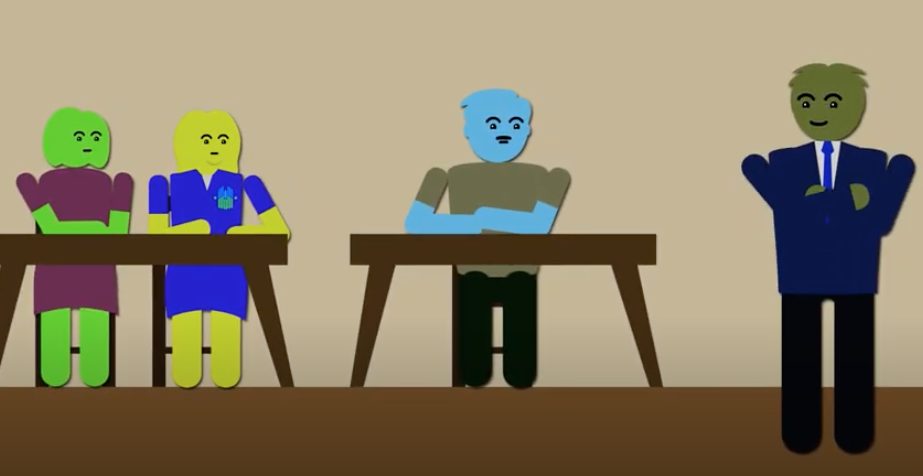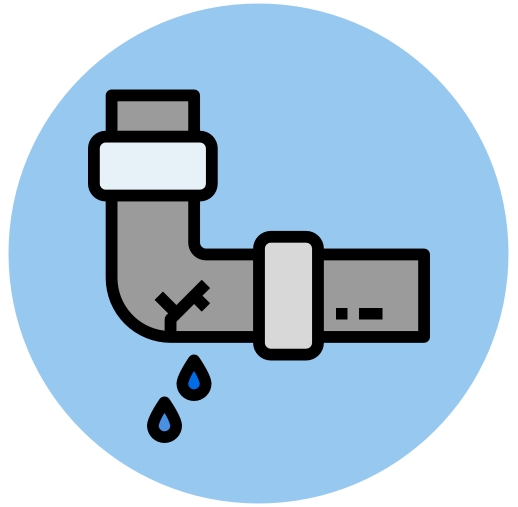
Living Conditions & Repairs guide
A free legal guide for tenants in VirginiaUse this guide to protect yourself and your family from bad living conditions.
Are you a renter in Virginia who is dealing with problems like mold, broken heating, broken air-conditioning, pests, or other bad living conditions?
You have the right to live in a safe and clean home. Make sure to protect your rights by requesting timely repairs by your landlord.
Use the step-by-step guide, video, and FAQs to understand Virginia law about renters and landlords.
If You Need More Help
Contact your local Virginia legal aid group by calling 1-866-534-5243.
You can also look up your local legal aid group online.
Lawyers can help you understand your options and next steps for your specific situation. Legal aid lawyers provide free help to people who qualify.
Step-by-Step Guide
Learn the legal process to deal with living conditions problems in Virginia.

Video Guide
Watch this to know about your rights as a Virginia renter about living conditions.
Frequently Asked Questions
Find out about what Virginia renters can do about bad living conditions.
How can you deal with bad living conditions in the home you're renting in Virginia?
Step-by-Step Guide to Dealing with Bad Living Conditions
For renters in VirginiaStep 1:
Determine if your home's conditions are threatening your health or safety
____
Look at the living conditions of your rented home. Are there any problems that pose a threat to you or your family?
Some of these problem conditions could be around:
- utilities (like electricity, water, sewage, heating, or air conditioning) that are not working properly,
- moisture and mold in your home,
- bugs, rodents, or other pests in your living space,
- or other problems that are making you unhealthy or unsafe.
If you do find living conditions that pose a threat to your family, then you can get help to get these problems fixed.
Step 2:
Find a lawyer to help you send a Demand Letter to your landlord
____
To get your landlord or property manager to fix problems in your rental, a lawyer can help you write a Demand Letter to your landlord.
A lawyer may help you to write a formal letter to your landlord, called a Demand Letter. A Demand Letter can explain the problem with the rental home, and make an official request to have it fixed.
Your local legal aid group might be able to help you do this for free. Contact your local Virginia legal aid group by calling 1-866-534-5243, or going to this website.
You still must pay your rent on time to your landlord during this step.
Step 3:
Go to Court to file a Tenant's Assertion if the problem isn't fixed
____
If your landlord does not make the repairs that you have requested, you can bring them to court to get the problems fixed.
You can file a Tenant's Assertion in a Virginia General District Court to get the problems fixed. Find a Tenant's Assertion form here at the Virginia courts website.
A legal aid lawyer may be able to help you fill in and file a Tenant's Assertion. See step 2 (above) to reach out to your local legal aid group.
Step 4:
After filing a Tenant's Assertion, pay rent into the court (escrow)
____
Once you have officially filed a Tenant's Assertion in the court, then you should pay rent to the court instead of your landlord.
This is called putting your rent into escrow. The court will hold your rent in an escrow account. Your landlord will not receive the rent until the court decides about your Tenant's Assertion case.
You still need to pay your rent on time throughout the process. But after filing you will pay your rent to the court instead of your landlord.
Step 5:
Gather evidence of the living conditions & problems
____
You will need to support your Tenant's Assertion with evidence. This evidence should show the problems with your rental home that threaten your health and safety.
Collect documents, images, recordings, bills, and other pieces of evidence that you can show in court.
Take photographs, collect medical bills, get utility documents, and collect any other information that show your living problems and the effects they have on you or your family.
Talk to a lawyer to understand what things you can show in court to prove your claims.
Be ready to show this evidence at court.
Step 6:
Go to the court hearing
____
Make sure you know when and where the court hearing will be. This is when you and your landlord can tell the judge your story and show your evidence.
You will have to show proof to support what you said in the Tenant's Assertion form. Bring your evidence to back up your claims.
The landlord will have a chance to explain their side of the story. They may also bring evidence. The landlord may have a lawyer with them.
At the end of the hearing, the judge will make a decision.
- If the judge sides with the landlord, then the court will give the landlord all the money from the escrow account.
- If the judge sides with you, then you can move forward on getting the problems fixed. You may also get money to cover the problems you've dealt with.
Step 7:
Follow through on the court order
____
The judge may order the landlord to make repairs. They may also order that you get some money back from the rent escrow account.
One part of the court order may be about fixing the home. The judge may order the landlord to fix all the problems you have shown.
You should make sure you understand what is in the court order. Ask for help from a lawyer or court official to make sure you understand what it says.
Another part of the court order may be about money.
The judge may order that you should get some of the rent that you have paid into the escrow account (at the court). This payment may be to help you cover the money you've spent on repairing the home or that you've spent to deal with problems you've suffered because of the living conditions.
If your landlord doesn't follow the judge's orders, you can return to court to follow up. This can be a way to make sure the landlord follows through on what the court has ordered them to do.

Video Guide on Landlord Repair Law
For landlords and renters in VirginiaWatch this 2-minute video to learn the essentials on Virginia landlord repair law.
- What do you do when your rented residence is in disrepair?
- Who is responsible for paying for repairs?
- What can you do if your landlord refuses to maintain your residence?
This video covers your rights as a tenant and how you can request repairs from your landlord. It also discusses your legal options if your landlord refuses to make repairs
FAQs about Rental Repairs & Living Conditions
For renters in VirginiaWhat are Virginia landlords required to do when it comes to repairs?
In Virginia, landlords are legally required to provide a safe, livable unit to people who rent from them. This means they must provide maintenance and repairs once they receive notice about problems in the rental home.
Following all Housing Codes. A landlord is required to comply with all state and local building and housing codes. The landlord must make all repairs and perform maintenance to keep the premises in a fit and habitable condition.
Working Utilities. This includes keeping all electrical, plumbing, sanitary, heating, ventilating, air-conditioning, and other systems working if the landlord provided them or if the law requires the landlord to provide them.
For example, the law does not require a landlord to provide an air conditioning unit for a rental home, but if the landlord does, then it must be kept in working order.
Water and Heating. A landlord is required to provide access to running water and reasonable amounts of hot water at all times of the year, and heating during the winter.
No Moisture or Mold. A landlord is required to maintain the premises in such a way as to prevent the buildup of moisture and the growth of mold.
Warnings before renting. Before signing the lease, the landlord must inform the soon-to-be tenant if there is any mold or defective drywall on the premises, if the premises had been previously used in the production of methamphetamine and had not been cleaned, or if the premises are close to a military airbase.
How can a tenant give their landlord proper notice about a repair they need?
You must provide, in person or by mail, a written request for service to your landlord.
That request needs to specify what the problem is and should provide a reasonable time for the landlord to make the repairs.
A dangerous problem, like flooding or gas leaks, should request immediate repairs.
A less dangerous problem, like a leaky faucet or a burned-out light bulb, may require less time.
You should always keep a copy of the request for service for yourself.
Can I stop paying rent if there are bad living conditions in my home?
Do not stop paying rent until your landlord makes the repairs.
This is illegal in Virginia, and your landlord may evict you for it.
Instead, make sure you follow the legal procedure:
- Inform your landlord of the need for repairs. Make sure this is in writing.
- Wait a reasonable amount of time for them to make repairs.
- If they don't make the repairs, then you may take them to court by filing a Tenant’s Assertion, sometimes called a Rent Escrow.
- You will pay your rent on time but to the court instead of your landlord. The court will keep your rent until you have a court hearing.
- The judge will hear your case and the landlord's. They will decide if you get your rent back.
What are Renters' Rights to good living conditions in Virginia?
What do landlords have to do, when it comes to renters' living conditions?
In Virginia, landlords are legally required to provide a safe, livable unit to people who rent from them. This means they must provide maintenance and repairs once they receive notice.
Landlords must tell you about certain problems before you sign the lease.
Before signing the lease, the landlord must inform the soon-to-be tenant about:
- if there is any mold or defective drywall on the premises,
- if the premises had been previously used in the production of methamphetamine and had not been cleaned, or
- if the premises are close to a military airbase.
Landlords must keep up good living conditions in the rental home.
A landlord is required to comply with all state and local building and housing codes. The landlord must make all repairs and perform maintenance to keep the premises in a fit and habitable condition. This includes keeping all of these in good and working condition:
- electricity,
- plumbing and running water,
- hot water in reasonable amounts
- sanitary and sewage systems,
- heating (in the winter) and ventilating,
- air-conditioning (if they had provided a unit to you),
- other systems working if the landlord provided them or if the law requires the landlord to provide them
Landlords must stop living condition problems from happening.
Landlords must make sure not to let living problems happen in your home. This includes:
- No buildup of moisture or growth of mold
- No bugs, rodents, or other pests
Get More Help
with your legal situation
Find a Private Lawyer: To connect with a private lawyer, call Virginia Lawyer Referral Service at 1-800-552-7977 or go to their website at https://vlrs.community.lawyer/. Some lawyers charge $35.00 for an initial interview.
Contact Legal Aid: You can call the Virginia Legal Aid Hotline 1-866-LEGLAID (1-866-534-5243). This will help you find your local free legal aid group.
If you are in Northern Virginia, seek help from the legal aid group Legal Services of Northern Virginia, visit https://www.lsnv.org or call (703) 778-6800.
If you are not in Northern Virginia, or need to find other groups, you can find a list of Virginia legal aid and help groups here, for more legal and financial assistance.
The information on this page is not legal advice.
Legal advice is dependent upon the specific circumstances of a person's situation. The information on this page cannot replace the advice of competent, local legal counsel.
Before taking action based on the information on this site, first check for up-to-date information with your local court system, and seek the advice of licensed local attorneys in Virginia (or your state).
This platform is not a substitute for qualified legal advice.
Please contact a lawyer in Virginia to help you with your specific situation. You can find a private lawyer by calling 1-800-552-7977 or find a local legal aid group by calling 1-866-LEGLAID (1-866-534-5243).
Housing legal problem guides
Do you need help with housing problems in Virginia? These free legal help guides can help with problems when you are a renter or a homeowner.
Eviction from home
Are you a renter in Virginia facing eviction from your home? This guide can help you navigate the eviction process.
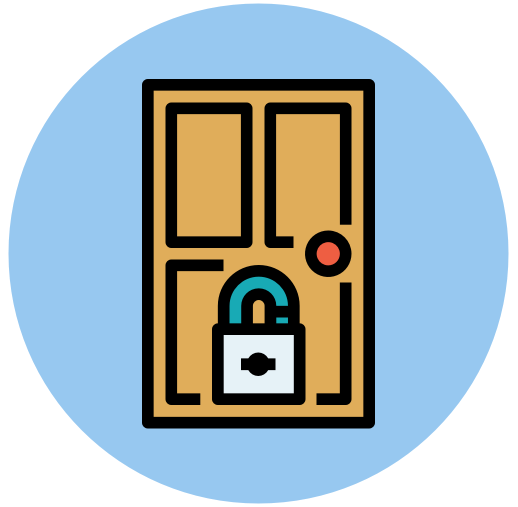
Lockouts from Rental
Have you been locked out of your rental home in Virginia?
Follow this guide to get back into your home legally.

Security Deposit
Are you a renter in Virginia who is trying to get their security deposit returned from a landlord? Use this guide.
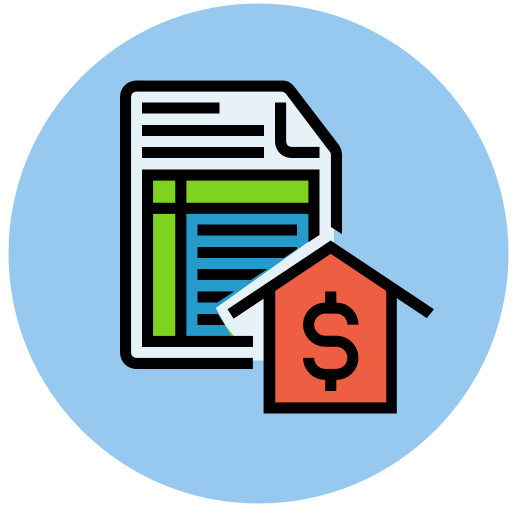
Foreclosure from Home
Are you a homeowner in Virginia who is faced with possibly losing your house to foreclosure?
